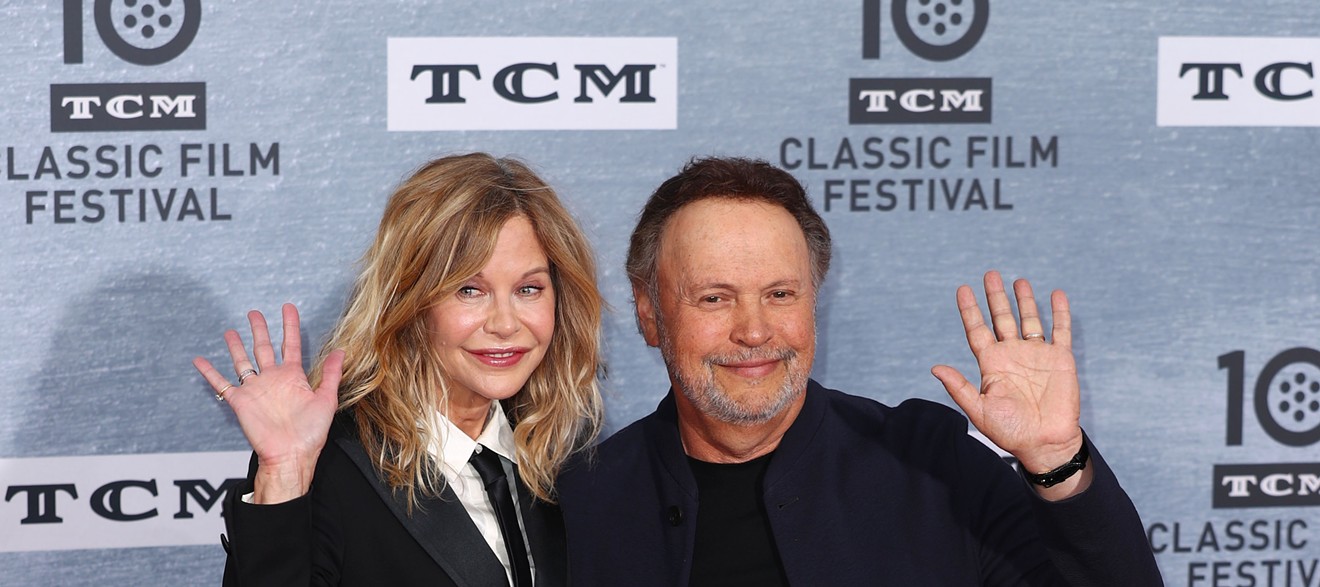For over three decades, this movie has dazzled audiences with its incredibly grounded take on the oft-derided genre, earning it the backhanded honor of being “the rom-com even men like.” It was nominated for an Academy Award, launched Meg Ryan into the stratosphere of stardom and made the movie-going public believe in Billy Crystal as a dashing romantic lead. With all of these accolades to its name, why does it still need defending?
For years now, listicle journalists have been foaming at the mouth to call your favorite movie “problematic,” and When Harry Met Sally invariably makes these lists thanks to one scene in the beginning. During the titular scene of the movie, the two leads meet while carpooling from Chicago to New York together and spend their time on the road having a series of debates. One scene that has earned the ire of critics is a debate in which Harry and Sally question whether men and women can be just friends.
While it’s true that this conversation is reflective of the heteronormative gender politics of the 1980s and would be viewed as a silly thing to talk about today, this brief back-and-forth between two characters who don’t even have the same opinion on the matter is held up as the thesis of the entire film. The point of When Harry Met Sally, critics claim, is that men and women can’t be friends.
In BuzzFeed’s “17 Worst Bits Of Advice Rom-Coms Have Given Us In The Last 25 Years,” When Harry Met Sally is listed as a “notable offender” of the friends-to-lovers trope. In Vulture’s “‘When Harry Met Sally’ Is Bad For Ladies,” Blythe Roberson argues that seeing Harry and Sally’s “beautiful friendship” be pigeonholed into genre conventions of inevitable romantic love is a betrayal to the reality of women having male friends with whom they’re not sleeping.
For every nostalgic thinkpiece about how When Harry Met Sally is the crown jewel of its genre, there will be two more about how it is sexist and dated.
The film has no clear answer on whether men and women can just be friends, but it does make one point perfectly clear: successful romantic partners also have to be friends.
tweet this
Dated? Sure. It was the 1980s; everything about that decade was dated. When Harry Burns said men and women can’t be friends, he probably didn’t know gay people existed.
But sexist? Are critics really going to make a couple of pieces of out-of-context dialogue the focus of the movie? Is the assertion that men and women can’t be friends really the focal point of this movie’s legacy?
If that’s the case, let’s just have mindless discourse over every debate they had in that car ride. Let’s make the point of the movie that Ingrid Bergman should’ve gotten on the plane at the end of Casablanca. While we’re at it, the point of the movie is that having a dark side doesn’t make you deep. The point of the movie is that Sally’s never had great sex, that wagon wheel tables are hideous and so on and so forth.
The movie is honestly lukewarm on most of these topics, especially the notion that men and women can’t be friends. This debate was not meant as the greater takeaway, but serves to highlight the characters' growth and how their interactions with each other change over the course of a decade.
At the beginning of the movie, Harry only sees Sally as a potential sexual conquest. In the middle, the two are best friends. At the end, they’re married.
The film has no clear answer on whether men and women can just be friends but it does make one point perfectly clear: successful romantic partners also have to be friends.
It also makes another point perfectly clear: sweater weather slapped then, slaps now and will slap forever.











